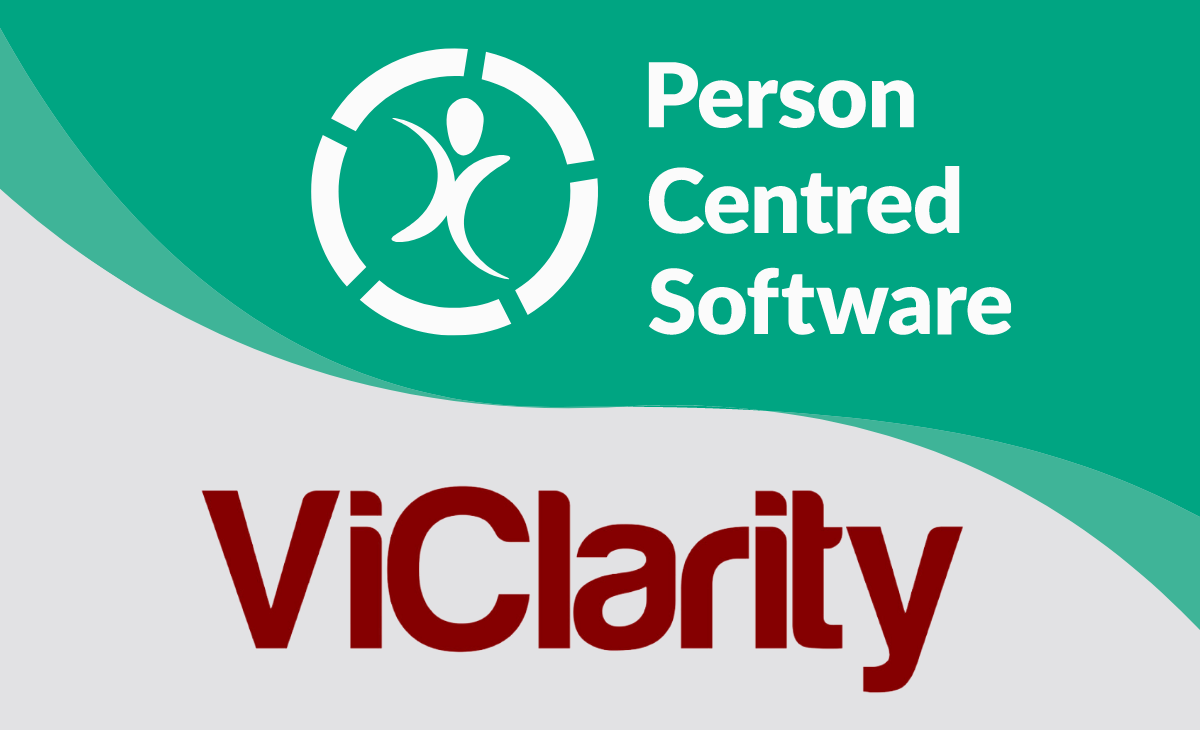
Published in Care Management Matters
We all know that people are at the centre of social care. Brilliant people who really care for others.
People who take the time to provide care centred around the individual. It is very different from healthcare, where the patient is often seen as there to be treated, and the treatment is at the centre, not the person.
Social care has taken a battering during the coronavirus pandemic, and, for a while at least, the mainstream media realised the importance of this sector, even if some of the messages from Government were not always helpful. The coronavirus pandemic did highlight one thing that social care has not always focused on in the past though, and that is managing information.
Most social care providers still rely on paper-based clinical systems. Whilst these might be wonderful for the people who use them, they are an intrinsic obstacle to data collection. Paper records cannot be aggregated or communicated to other parties without manual processes. Paper records cannot be guaranteed to have consistent information across different providers.
In healthcare, there are statistics about the effectiveness of different treatments, and decisions are very often data-driven. This can seem impersonal and, as social care is so personal, data-driven decisions have not been a priority. But we can improve the quality of care without removing the person-centred approach.
There are published academic studies showing it’s possible to predict falls based on the care in the previous two weeks. Imagine how this could help a care provider – they could focus more time on people at risk based on accurate information rather than historical experience. There are acoustic monitoring systems that have been able to identify COVID-19 based purely on the sound of a person coughing.
Imagine if every care provider knew who was infected and was able to isolate them, immediately. Knowing more doesn’t mean less person-centred care, it means better person-centred care. No one wants excessive intrusion, but imagine if every care interaction by a trained care worker were digitally evidenced.
If this information were then stored over time, and the eventual outcome was also evidenced, then it would be possible to analyse the data to find common themes. For example, there is some evidence that spending time outside could reduce the onset of dementia. If there was more data around this, then more outdoor activities could be provisioned, which could lead to better outcomes, but we don’t know this for certain yet – so it isn’t being recommended.
Improving quality
We know there are direct relationships between the care given and outcomes achieved. For example, studies have shown that live monitoring of fluid intake, with alerts for when people are below a certain threshold, can reduce urinary tract infections and falls.
Others show that improved pain management can reduce over-prescription for people with challenging behaviour as a result of dementia. This all contributes to a better quality of care and quality of life for the people engaging with services – and the Care Quality Commission (CQC) can see the digital data and evidence from each provider using this sort of technology.
But what if the whole sector were using it? The data could be combined to find new ways of supporting people. With much of adult social care continuing to build their systems around paper, the only way CQC can see a bigger picture of what is going on in the sector is to create additional processes to collate information, such as the capacity tracker, which just adds burden to care providers for no benefit to them.
Without this comprehensive overview of the sector, it is difficult for CQC to ensure it is being consistent itself; there is no data to enable consistency.
A changed mindset across care providers to put data first will lead to improved standards. The need for inspections by regulators will not disappear, but if care providers knew where there were weaknesses just from looking at their own data, then they could address them without waiting for an inspection; and if inspectors knew where care providers had weaknesses then they could focus on the improvements necessary to resolve them. In a world where care information is connected and able to be aggregated, then opportunities to improve the quality of care will exist in places no one can yet envision.
It is possible that knowing more about people’s care over time won’t help. It is possible that all care is planned to best meet everyone’s needs, and that the amazing people who work in social care are all providing the best for everyone they support. This is unlikely though, because if this were the case then surely every care provider would be rated as providing outstanding care by the regulator.
Changing perceptions
There is no doubt that Government made a mistake in moving COVID-19-positive people from hospitals into care homes. In many cases, no one knew that the person had COVID-19, but in some cases the hospital did know and the care home was not informed.
Mistakes will always happen, but data could have saved lives. Firstly, if records were joined up between social care and health care then what the hospital knew would have been available to the care home. Secondly, if Government had known earlier the mortality rate in care homes, they could have acted faster.
Both of these situations are being addressed, but there is a great risk to social care that the solution will be health-led, and not fit for purpose for the social care sector.
Neither social care nor health care have consistent methods for handling data, but social care has a massive data void, and this leads Government to believe that health care should lead the way.
The future is digital
On 15th July, a group of social care providers started collating information from their care management systems regarding checking for COVID-19 and testing rates, and this information is being sent daily to NHS Digital to help Government make informed decisions. There was a question recently from NHS Digital about whether flu injections could also be collated, and this seems a simple and obvious addition.
The possibilities are endless, and the opportunity for UK social care to become a leading source of data to help improve outcomes for vulnerable people is within our grasp. The only things standing in our way are the vision to work out what data to collate and the commitment from care providers to use and share digital information.
Digitally connecting social care and healthcare is going to be part of the future. The NHS is enabling the ability to communicate information and there are several pathfinder pilots to connect information based on the Digital Red Bag, GP Connect and Shared Care Record. Social care providers will need to adopt digital clinical systems to take advantage of these connections, and providers of digital clinical systems will need to connect them to health care services, but once everyone is connected then information will be able to flow between social care and healthcare to the benefit of the people being cared for.
When going to hospital, NHS staff will know when someone is arriving before they get there. The NHS might already know the medication someone is prescribed, but there is a host of information that the social care provider knows about each person that would be useful to the NHS. In return, when someone is discharged from hospital then everything the NHS knows will be available to the care provider, including medication and food allergies. Working together, the data set for a vulnerable person will become far richer, and people will be able to receive the care they need more effectively.
Other countries are already showing the benefits of connected health care and social care and there is little doubt that the UK will achieve this in time. Social care providers are being encouraged to communicate to the NHS by email using NHSmail, but this is only the first step.
Interconnected data between social care and the NHS will become the norm and there will come a time when keeping digital clinical records in social care will become mandatory. It may not be this year, but the digital revolution has not only started, it is gaining pace, and the benefits are becoming increasingly visible across government and the NHS.







.webp?width=80&height=80&name=HTD%20Awards%202023%20Badge%20(4).webp)














